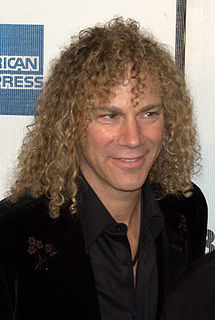A Quote by Bonnie Tyler
Every time I release an album my old record company releases another one.
Quote Topics
Related Quotes
You're not going to hit it every single time, and that's why, when I record an album, I do probably close to 50 songs. Each song I record has to get better. If it's not better than the last song that I made, it'll usually linger for a couple of months, and then it'll be put on the backburner, and then there'll be another song that I do, and then it often doesn't make it on the album.
In my opinion, I would still like to go into a studio - because I love the environment of being in a studio - and record a great album beginning to end, but then maybe not release it as an album. Maybe put singles out there, put songs out there - either give some away or release some the traditional way.
When I finally stopped [singing], he had been saying, like, the last day or so, he'd been saying, now, I think we should put this one in the album. So without him saying I want to record you and release an album, he kept - he started saying, let's put this one in the album. So the album, this big question, you know, began to take form, take shape. And Rick [Rubin] and I would weed out the songs.
My contract with mercury PolyGram Nashville was about to expire. And I never had really been happy. The company, the record company, just didn't put any promotion behind me. I think one album, maybe the last one I did, they pressed 500 copies. And I was just disgusted with it. And about that time that I got to feeling that way, Lou Robin, my manager, came to me and talked to me about a man called Rick Rubin that he had been talking to that wanted me to sign with his record company.
I think record cover sleeves really led towards, but at the same time the album as we know it didn't come into being until mainly after the Second World War because record labels realized they'd be able to make a lot more money putting all the singles of an artist onto one album and selling the whole album as a kind of a concept.


































